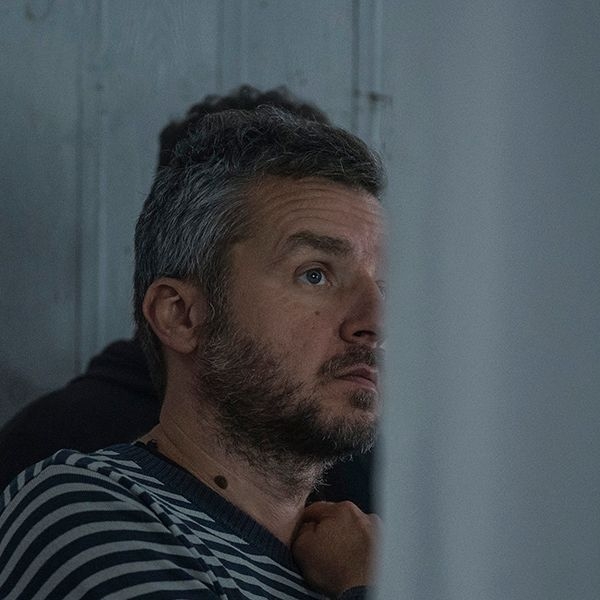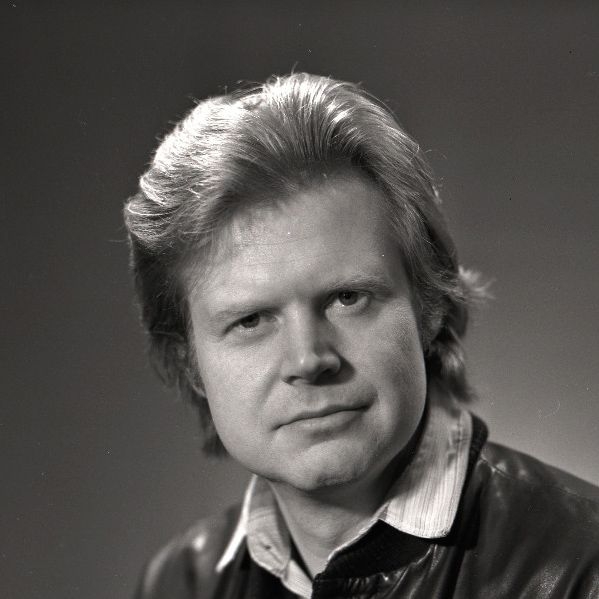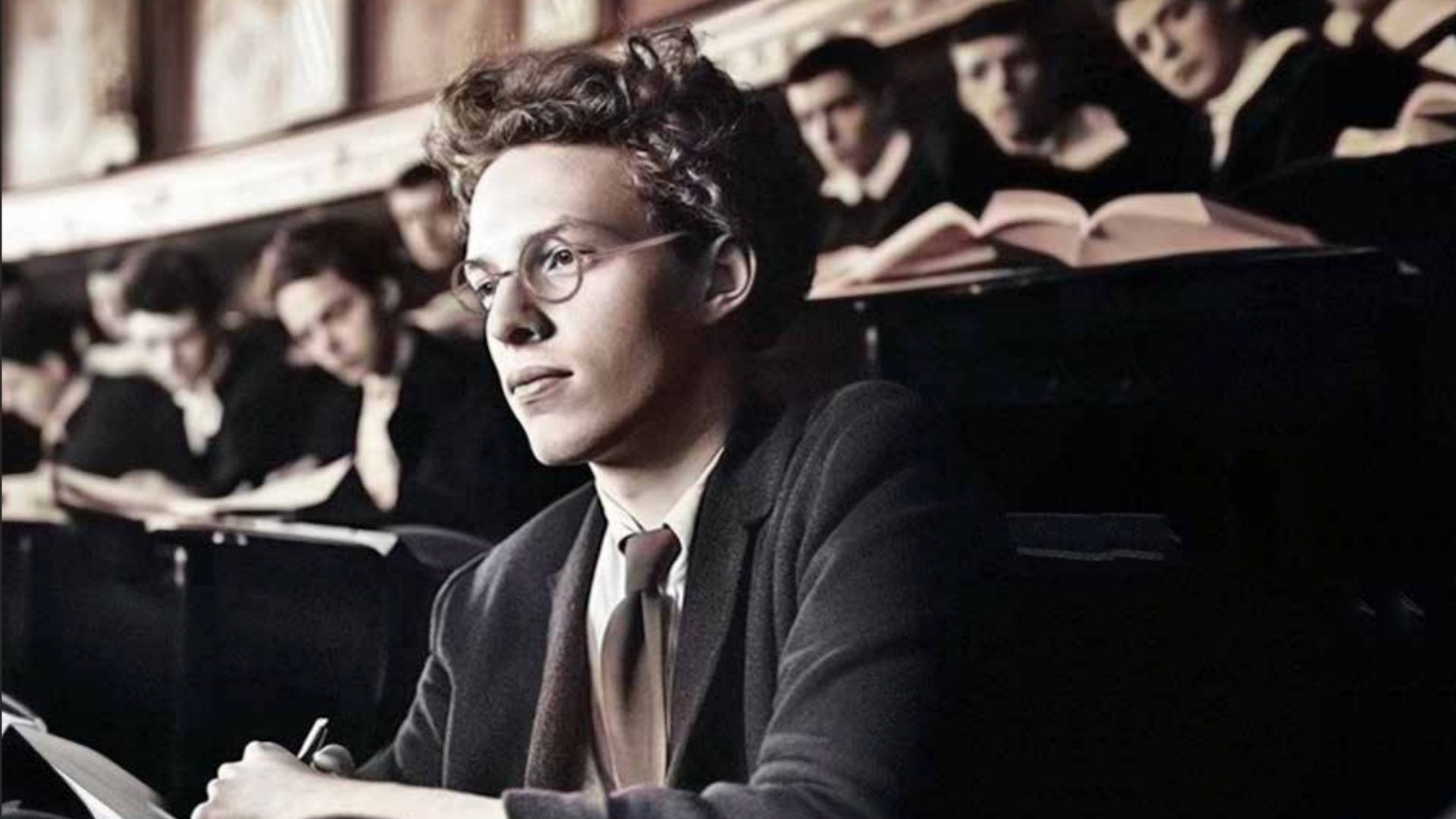Baltic Event Co-Production Market
Johnny
A film about the student years of the future Estonian President Lennart Meri in occupied Estonia, 1948–1953.
On Christmas Eve 1948, 19-year-old Lennart 'Johnny' returns to post-war Tartu. Brilliant and defiant, he studies history, reads Baudelaire, speaks four languages, and secretly resists Soviet rule. With friends, he founds the underground Black Hand, staging daring provocations against the regime – some failing, others inspiring fellow students. While his father Georg suffers imprisonment, Johnny works at the theatre, falls for Gina, and dreams of freedom. Yet amid love, study, and rebellion, the tightening grip of Soviet oppression casts a dark shadow over his future.
Main country of production
Estonia
Director's note
In the film, an important role is played by Johnny's closest circle of friends, which includes future great figures of Estonian culture – poet Ain Kaalep, children's writer Eno Raud, and translator Harald Rajamets (and linguist Valmen Hallap) – all of whom are united by their opposition to Soviet power. They are friends on the same side of the front line, facing totalitarian cruelty and an ever-deepening sense of hopelessness. The creation of a secret society is born out of the need for absolute trust and camaraderie, which also carries the youthful joy of play and excitement. The ritual oath of the Black Hand consecrates both romantic friendship and devotion to resistance. In the script, I would like to further develop the thriller element, where mistrust and suspicion begin to gnaw at the bonds between the secret society of friends. The paranoid atmosphere of Stalinist repressions bred fear and distrust. It took very little – even a lightly political accusation – to lose everything: freedom, loved ones, even life itself. That makes the eventual realisation of our characters all the more liberating and heartfelt – that the loyalty of the Black Hand is unbreakable, and their friendship pure and brotherly.
I want to use young actors, aged 20–25. In rehearsals with the actors, I want to pay special attention to group dynamics. During rehearsals it is important to create a functioning sense of partnership and ensemble, based in a certain way on 'brotherhood unity.' Our quartet of characters (where Harald, who departs, is replaced halfway through the film by Valmen) is sufficiently distinctive and colourful, combining intellectuals, feelers, and strivers. I have thought about casting into the Black Hand circle young actors from Drama School's 31st graduating class – Herman Pihlak, Laurits Muru, Edgar Vunš, Markus Auling – whose shared spirit and camaraderie from studying together could also carry onto the screen.
In rehearsals I want to search and discover, together with the young actors, how to most interestingly play out the rift between the devoted resistance fighter and the inexperienced youth, torn between inner confusion and moments of dashing worldliness.
Casting and the rehearsal period are crucial in developing the style of staging – what is the relationship between the characters, how much colour do they need, and where to find material and inspiration for each one. External resemblance to prototypes is not insignificant either. The key is realism – sincere and energetic.
The young characters' acting style should be tense and composed, with flashes of youthful bravado, as if in a desire to forget the surrounding oppressive Stalinist reality. On the shoulders of these young men, who sharply feel the fate of their people and country, lies an invisible burden they bear voluntarily and with honour – the obligation to remain true to the ideals of a free nation, something they perceive as a flame that must not be extinguished. And yet, at moments, they just want to be young, to breathe and to taste the flame of life. This is expressed in music, songs, and dancing, which play an important role in our film. In dancing, one can briefly be freed from the heaviness of existence and time, carried away by music, feeling the body, touches, closeness of a partner. The film's protagonist Johnny cannot dance, and this deprives him of those moments of lightness and abandon that his fellow students, friends, and his love interest Gina experience and even throw themselves into. This 'disability' weighs on Johnny, the otherwise flawless intellectual giant, gnawing at his soul, dimming his joy of life, but all the more making him at times feel like a martyr carrying more than is fitting for his young age and frail health.
The dynamics of crowd scenes. In our film, large-scale scenes play an important role: on the one hand, the academic spirit prevailing at select gatherings of professors and students at Torpats's, and on the other, student parties with music and dancing at the Women's House or the university café, as well as, of course, the duel. In my vision, at the beginning of the film student parties are somewhat politely restrained, but as the surrounding totalitarian system 'tightens the screws' and limits freedoms, these student gatherings increasingly become unrestrained and defiant counterbalances. At one such party begins the quarrel between Eno and Ain, centred around Lennart's sweetheart Gina. The duel, initiated by Johnny at the end of the film, should serve as the ritual and carnivalesque (liberating) resolution of this dramatic arc.
The camera, according to situations and characters (parties in increasing gradation), is dynamic (steadicam vs shoulder camera), but when needed also gentle and sensitive (the boys' scenes in the dorm room, Johnny and Gina's moments, Johnny and his family). Although the protagonist of the film is Johnny, other members of the Black Hand are also important characters, toward whom the audience should feel sympathy, and hope for friendship and loyalty.
Another important thread is Johnny's relationship with his father and family. This is a unit battered by dramatic events, where love and care flicker like a trembling flame. Dignified and intelligent people, who keep much of their feelings to themselves. But it must not come across as repressed or lifeless. Johnny's relationship with his father Georg is built on respect and warmth. In rehearsals with the actors I would like to fill this relationship with lifelike details and naturalness.
One of the charms and cultural values of 'Johnny' is its gallery of emblematic figures of the time – Ariste, Torpats, Lotman in the academic sphere, Georg and Hindrek Meri in the family sphere, or Eno Raud, Ain Kaalep, Harald Rajamets in the circle of friends. At present we have largely chosen actors based on external resemblance. I believe we cannot avoid in acting the prototypes' mannerisms, speech styles (Lennart, Ain, Eno and, on the other hand, Ariste, Torpats, Lotman). But this must not, of course, be parodic (which, when it comes to portraying Lennart or Lotman, might seem like a danger when reading these lines), but rather a light stylistic emphasis.
One of my stylistic references is the BBC series 'Cambridge Spies,' which tells the story of the Cambridge Five spy group in 1940s England. The era, colour palette, costumes, acting (especially the portrayal of anxiety and conspiracy) serve as very good references for our story.
'Johnny' is a historical (adventure) film with young protagonists, telling events that are emblematic in the context of Estonian history. But we cannot overlook the fact that these historical events can also be paralleled with today's (at times dystopian) political developments. At the same time, I would like to emphasise youthful energy, which would also make our film appealing to today's younger audience. Self-discovery and self-assertion. Ideals vs compromises. Friendship and love. I believe this will resonate both with those generations who remember Lennart as an intellectual, public figure, and president, and with today's youth, who, through Johnny and the Black Hand characters, will gain an exciting insight into a harsh and dark period, discovering in the storm and turmoil of young people then both similarities and differences with today's youth in our own time.
Producer's note
The idea of making a film about Lennart Meri's student years has been on my mind for several years already. It is a largely uncovered period in the life of our popular president, and as such it offers the curious viewer an exciting exploration and an immersion into an era that is unfamiliar to most.
I myself studied history at the University of Tartu, nearly thirty years after Lennart Meri, but even in my time there still lingered something of the pre-war aura of the university – the spark among the students and the elegance of the professors: Voldemar Vaga, Ülo Torpats, Paul Ariste, Juhan Peegel, Villem Alttoa. Because of this, I feel a bridge within myself to Lennart Meri's Tartu years, and a need to bring the project to life as a film.
Interestingly, this contradictory post-war period has been quite well documented, with fascinating stories. I have read most of the memoirs from that time, Lennart Meri's biographies, and texts by historians. I have consulted several people who were close to Lennart Meri, among them his son Mart Meri and his colleague Jaak Jõerüüt, both of whom have also confirmed their willingness to continue cooperating as the project develops.
The film covers the period of Lennart Meri's life from entering the university in 1948 until 1953, when he marries and graduates. At this time, he and his companions are in their twenties – young, energetic men, just beginning their lives, filled with the ideal of a free Estonia.
Lennart's common nickname was Johnny, which he carried from high school, most likely due to his excellent command of English, the intelligence inherited from his father Georg Meri, and his rather measured and elegant manner. Yet this did not prevent him from being a witty trickster, which was of great use for survival in the increasingly repressive environment of Russification.
The name Johnny followed Lennart Meri later in life too – Mart Meri recalls being surprised in his youth when Lennart's university friend Hans Trass, visiting them, still called him Johnny.
Among Lennart's companions stood out several figures who later became important personalities: Eno Raud – future children's author, Ain Kaalep – poet and translator, Valmen Hallap – linguist, and Harald Rajamets – poet and translator.
The story follows Lennart's cheerful fellow students and the secret 'Black Hand' brotherhood under the ever more depressing pressures of Russification, in their search for enlightened and free people, and in their own striving to be the same. In the background looms the tragic and multifaceted fate of Lennart's father Georg – an inseparable thread between father and son.
The first version of the script was written by Mart Kivastik. Unfortunately, differing understandings of the story emerged, and we decided to end the collaboration – the contract dated 26 January 2024 is attached to the application package.
After consulting with Mart Meri, Jaak Jõerüüt, and Kaarel Piirimäe, who is well-versed in the post-war history of the university, I myself wrote versions 2-4 of the script – the contract dated 20 January 2024 is attached to the application. This version also incorporates some of Mart Kivastik's better ideas.
The director of the film is Jaak Kilmi, whose creative skills and interest in addressing intellectual themes through contemporary cinematic language have been remarkable –'Shadow,' 'Disco and Atomic War,' 'My Father the Spy,' 'Meeting with the Unknown.'
Collaboration with Jaak began already in autumn 2024. Together we have analysed the dynamics of the story, its stylistics, and potential casting choices. His comments and corrections have been important in the creation of the current fourth version of the script. It is bold and spirited, firmly based on important facts, and in further development holds strong promise for creating an exciting and well-composed story.
For the cinematographer, we have begun negotiations with Rein Kotov and Mait Mäekivi. The film's production designer is planned to be Katrin Sipelgas, with whom Jaak Kilmi has had successful collaboration across several projects. An initial booklet introducing the idea of the film has already been prepared.
The main tasks for the development period are the creation of the final script, which will serve as the basis for a high-quality film of both domestic and international interest; the formation of a compelling young cast to bring the film to life; the definition of an engaging cinematic vision in which the era of the past is presented through a contemporary perspective; and, in cooperation with partners, the establishment of the necessary financial and technical foundation for all of this.
We have presented the idea of the film at international forums and workshops, and concrete partners have already been identified: from Finland – BUFO OY / Mark Lwoff, with whom Exitfilm collaborated on 'Goodbye, Soviet Union;' from Latvia – Studio Locomotive / Roberts Vinovskis, with whom Jaak Kilmi has previously cooperated successfully. From Lithuania, Film Bees / Juliana Miliut has joined with a letter of interest.
Subjects:
individual vs society, based on a true story, friendship, love, historical personas, coming of age

Jaak Kilmi was born on 23 October 1973 in Tallinn, Estonia. He graduated from Tallinn University (Baltic Film and Media School), majoring in film directing. He has co-directed and produced a string of successful short films, several documentary films, and three feature films. His films have been awarded internationally and have enjoyed successful theatrical runs in Estonia. He teaches film directing at Tallinn University.
[object Object]

Peeter Urbla (1945) is a director, screenwriter, and producer whose films bear the refined touch of his background in art history. As a producer, he’s been a champion for emerging talent, while also building Estonia’s global film connections.
Filmography: Karikakramäng: Promenaad (Daisy Petal Game: Promenade, 1977, short), 31. osakonna hukk (Murder on the 31st Floor, 1979–1980), Ma pole turist, ma elan siin (I’m Not a Tourist, I Live Here, 1988), Balti armastuslood (Three Baltic Love Stories, 1992), Stiilipidu (Shop of Dreams, PÖFF 2005)

